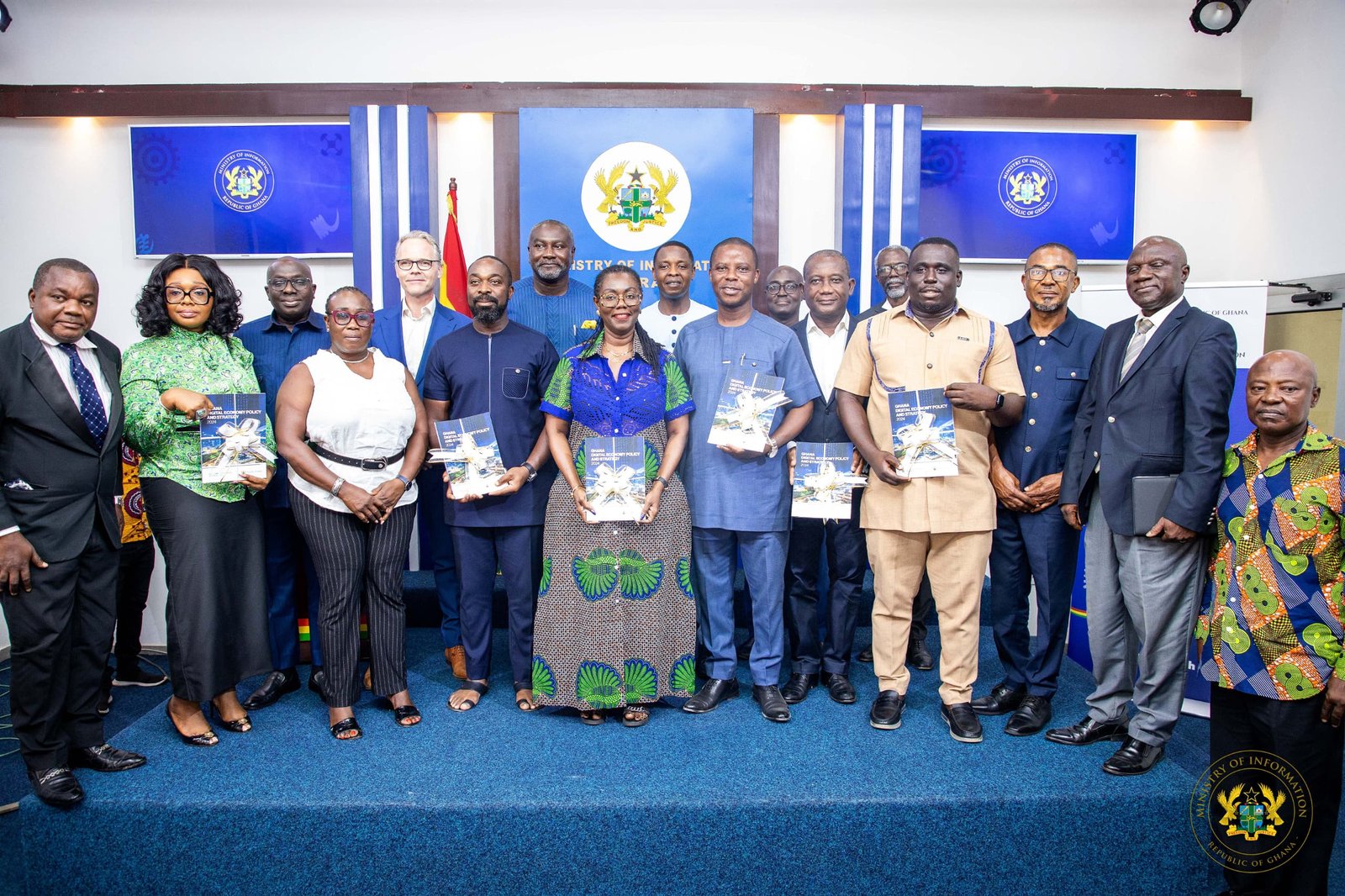
The Minister of Communications and Digitalisation, Mrs. Ursula Owusu-Ekuful, has launched Ghana’s Digital Economy Policy and Strategy, a comprehensive framework aimed at driving the country’s transformation into a fully digital society.
Addressing the press at the Ministry of Information yesterday, the Minister said the policy aimed to leverage digital technologies to foster economic growth, improve public services, and ensure equitable access to digital resources.
She emphasised that access to digital technologies and services was no longer a luxury for the privileged few but a human right for all.
The Minister highlighted the expansion of a high-speed eGovernment network connecting 951 public institutions, backed by 3,500 kilometers of fiber optic cables laid in 2023, as a key milestone in bridging the digital divide.
She noted that the government was laying the groundwork for a digitally inclusive future, ensuring that every Ghanaian benefits from the opportunities of the digital age.
Key areas
She cited five key areas of focus, namely, entrepreneurship, digital skills, digital government, universal access and emerging technologies. These, she indicated, were intended to strengthen Ghana’s economic base, promote an ecosystem in which technology drives inclusive growth, and open doors for both individuals and companies.
Additionally, she mentioned that the government’s strategy to leverage digital technologies was to address Ghana’s economy’s present and future needs. She noted that by aligning digital efforts with job creation and GDP growth, the policy aimed to ensure that technology becomes a powerful engine for inclusive development, reducing poverty and enhancing prosperity for all Ghanaians.
“Through digital technologies, we are confident of seeing significant progress in entrepreneurship and public service efficiency,” she said.
She recognised the support of key partners, including the World Bank and the Tony Blair Institute. The Minister called for greater collaboration across sectors, emphasising that private-sector investment was essential for addressing connectivity gaps.
Adaptive
She reiterated the need for adaptive regulation to foster innovation while protecting citizens from risks like fraud and misinformation as the country positioned itself as a leader in Africa’s digital future. “This is our roadmap to securing a prosperous digital future for all Ghanaians,” she added.
“The Fourth Industrial Revolution presents both opportunities and challenges. This strategy ensures we harness technology to create sustainable jobs and improve service delivery,” she said.
She emphasised that Ghana’s digital agenda aimed to ensure equal access to broadband internet connectivity throughout the country. “The Government has implemented policies to ensure every communications user has equal access to public and private digital services, regardless of their service provider,” she added.
She mentioned that the implementation of the Ghana.gov portal, which integrates public services, and the Citizens App, allowing access via smartphones, were designed to enhance efficiency and transparency. “These tools demonstrate how digitalisation can improve lives and build trust in governance,” the Minister noted.
She indicated that digital technologies came with their own attendant challenges, such as mobile fraud, abuse, attacks, misinformation, among others. “To combat these, the policy includes plans for public awareness campaigns using local dialects. Being aware is being empowered,” she stated.
She noted that by consolidating gains made in digital infrastructure, the government hoped to unlock value in areas such as education, healthcare and entrepreneurship.







